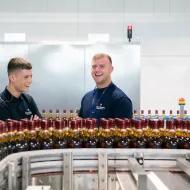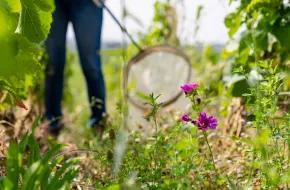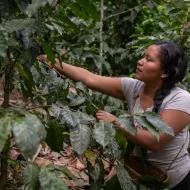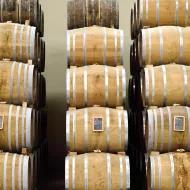For every ‘Ocean Edition’ bottle sold, £1 will be donated to the Ocean Conservation Trust
For every ‘Ocean Edition’ bottle sold, £1 will be donated to the Ocean Conservation Trust
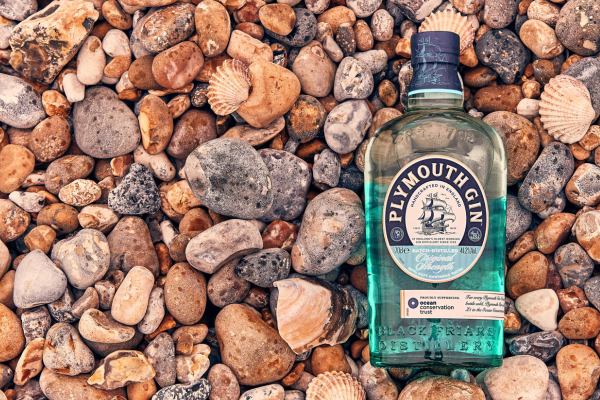
Plymouth Gin is continuing its sustainability journey this spring with the launch of its ‘Ocean Edition’ bottle, created in partnership with ocean charity, the Ocean Conservation Trust (OCT). For every one of these brand new, limited-edition bottles sold, Plymouth Gin will donate £1 to the OCT.
The blue-tinted Ocean Edition bottle, with a design inspired by the waves of the sea, will be available to purchase just in time for the spring sea-son from Tesco, Sainsbury’s, Asda, Waitrose, Morrisons and Amazon, for an RRP of £26. As with the rest of the bottles that make up the Plymouth Gin range, the packaging has sustainability at its heart – its label is made from recyclable paper and the glass used is 100% recyclable.
The limited-edition bottle is the most recent step of Plymouth Gin’s partnership with the OCT which started in 2021 – with both organisations situated amongst the stunning scenery of the South West coast. The Plymouth Gin distillery has its home on Plymouth harbour, at the heart of the local community, and, like gin is to tonic, its story is indelibly anchored in the benefits of the surrounding sea.
Plymouth Gin’s work with the OCT so far has centred mainly on the charity’s ‘Blue Meadows’ project in Falmouth, which looks to protect local seagrass meadows. It aims to protect around 700 hectares (equating to 10% of all UK seagrass meadows), over the next five years, restoring them to the quantity and quality of how they were 60 years ago. The activity is particularly important because almost half of the UK’s seagrass beds have disappeared since the 1930s[1], making it the fastest disappearing habitat on the planet[2].
Its funding and support has led to 19 marker buoys being placed in the harbour to indicate to fishermen and boat-owners nearby that there’s seagrass “ahoy”. This has protected over 20 hectares of seagrass meadows – the equivalent to 20 football pitches.
Seagrasses are one of the most biodiverse habitats on the planet, being one of the few habitats that provide multiple environmental benefits. It is also a biodiversity hotspot, and a single hectare of seagrass alone can support thousands of fish, rare species such as seahorses and certain types of jellyfish. Seagrasses can also help in the fight against climate change by absorbing 10% of ocean carbon[3].
Sean Harrison, Master Distiller for Plymouth Gin, says of the partnership: “Here at Plymouth Gin, we like our seas clean and our martinis dirty. We have called the South West home since 1793, and although we’re 230 years old, we believe you’re never too old to make waves. Our distillery is only metres away from the harbour and, naturally, we feel a duty to help protect this most precious of habitats. The donations from our brand-new Ocean Edition bottle will hopefully be a lot more than a drop in the ocean and keep our local seagrass stocks thriving for the next 230 years (and beyond)”.
Roger Maslin, CEO of the Ocean Conservation Trust, added: “Our long-term partnership with Plymouth Gin has allowed us to drive awareness of the importance of a healthy ocean by supporting our work, centred around people and positive action. From an impactful campaign encouraging people to leave nothing but footprints when visiting the beach to vital action protecting and regenerating seagrass meadows along the Southwest Coast. We are excited for this next great initiative, the limited-edition Plymouth Gin bottle, which will raise awareness of our mission to a wider audience and allow us to continue our important work protecting one of the planet’s most valuable and biodiverse habitats, seagrass. Together, we will be able to achieve our vision of a healthy, thriving ocean.”
Plymouth Gin is made using the same original recipe from 1793 and is handcrafted in the UK’s oldest working Gin distillery, The Black Friars Distillery.
As part of Plymouth Gin’s sustainable initiatives, The Black Friars distillery is 100% powered by hydroelectricity, and all botanicals that make up the recipe are recycled via anaerobic digestion. The Visitor Centre has also entirely removed 100% of single use plastic products, and all cocktail garnishes and even the eggshells are transformed into green energy. Finally, Plymouth Gin has been working with the OCT on a series of beach cleaning programmes since June 2021.
[1] -Green, A. E., Unsworth, R. K., Chadwick, M. A., & Jones, P. J. (2021). Historical analysis exposes catastrophic seagrass loss for the United Kingdom. Frontiers in plant science, 261
[2]The International Union for the Conservation of Nature (IUCN) estimated in 2014 that seagrasses are declining by 7% a year globally. This estimate makes it the fastest disappearing habitat on the planet
[3] Article in Nature Geoscience – Seagrass ecosystems as a significant global carbon stock





